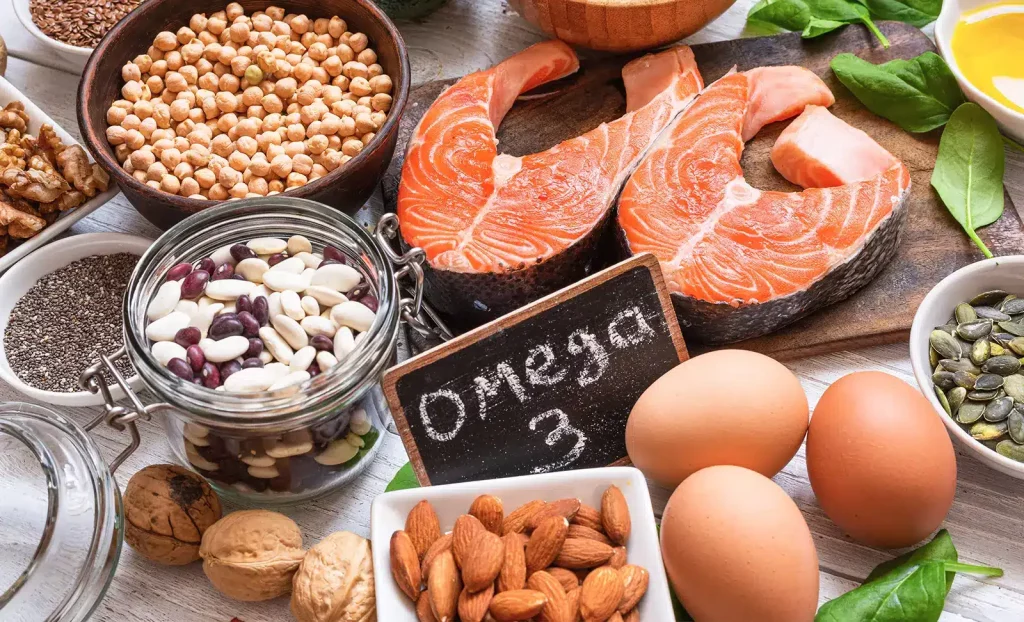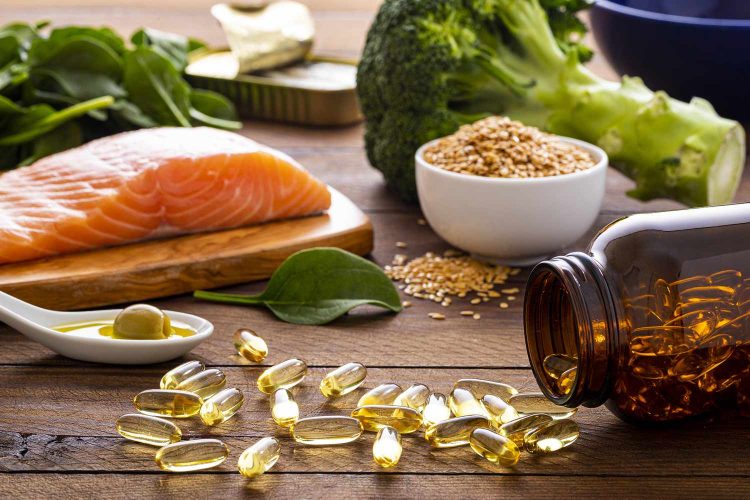Maintaining healthy teeth and gums goes far beyond brushing and flossing; what you eat plays a critical role in the overall health of your mouth. Certain nutrients have a direct impact on the strength and longevity of your teeth, while others support gum health and fight oral infections. A balanced diet rich in specific vitamins and minerals can help prevent tooth decay, gum disease, and other oral health issues.
In this article, we’ll explore the best foods for tooth protection, highlighting the nutrients essential for keeping your smile bright and healthy.
1. Calcium: The Building Block for Strong Teeth
Why It’s Important:
Calcium is a crucial mineral for maintaining strong teeth and bones. It helps to build and maintain tooth enamel, which is the outer protective layer of your teeth. Strong enamel resists cavities and decay, and calcium also supports the jawbones, providing a foundation for your teeth to stay securely in place.
Best Sources of Calcium:
- Dairy products: Milk, cheese, and yogurt are some of the best natural sources of calcium. They also contain phosphorous, which works synergistically with calcium to remineralize your teeth.
- Leafy greens: Kale, spinach, and collard greens are excellent plant-based sources of calcium.
- Fortified foods: Many non-dairy options such as almond milk, soy milk, and orange juice are fortified with calcium to provide an alternative source for those who avoid dairy.
Tip: Incorporating calcium-rich foods into your diet helps fortify tooth enamel and strengthen the bones in your jaw, supporting long-term oral health.
2. Vitamin D: Enhances Calcium Absorption
Why It’s Important:
Vitamin D plays a vital role in helping your body absorb calcium. Without sufficient vitamin D, your body cannot absorb enough calcium from your diet, which means your teeth and bones are at risk of becoming weak. Additionally, vitamin D helps to regulate the immune system, reducing inflammation and promoting gum health.
Best Sources of Vitamin D:
- Fatty fish: Salmon, mackerel, and sardines are rich in vitamin D.
- Eggs: Egg yolks are a good natural source of vitamin D.
- Fortified foods: Many dairy products, plant-based milks, and cereals are fortified with vitamin D.
Tip: Aim to get some sun exposure (about 10-30 minutes a day) or consume foods rich in vitamin D to help your body absorb the calcium necessary for strong teeth.
3. Phosphorus: Essential for Tooth Remineralization
Why It’s Important:
Phosphorus is an essential mineral that works closely with calcium to strengthen and maintain the structure of your teeth. Phosphorus helps with the remineralization of tooth enamel, a process that is crucial in repairing minor damage caused by acid attacks from bacteria or food. It also plays a role in keeping the bone structure of your jaw strong.
Best Sources of Phosphorus:
- Meat and poultry: Chicken, turkey, and beef are rich in phosphorus.
- Fish: Tuna, salmon, and other fish are excellent sources of phosphorus.
- Nuts and seeds: Almonds, sunflower seeds, and walnuts are good plant-based sources of phosphorus.
Tip: Including phosphorus-rich foods in your diet helps maintain strong enamel and support healthy bone structure, making your teeth more resistant to decay.
4. Vitamin C: Boosts Gum Health
Why It’s Important:
Vitamin C is vital for the health of your gums. It helps produce collagen, the structural protein that holds gum tissues together. A deficiency in vitamin C can lead to swollen, bleeding gums, and even gum disease. Vitamin C also has antioxidant properties, helping your body fight infections and reducing inflammation in your gums.
Best Sources of Vitamin C:
- Citrus fruits: Oranges, grapefruits, lemons, and limes are packed with vitamin C.
- Berries: Strawberries, raspberries, and blueberries are rich in vitamin C and antioxidants.
- Bell peppers: Red and yellow bell peppers have more vitamin C than citrus fruits.
Tip: Aim to include vitamin C-rich foods in your daily diet to keep your gums healthy and reduce the risk of gingivitis or periodontal disease.
5. Fiber: Natural Tooth Cleaner
Why It’s Important:
Fiber is not only beneficial for digestion but also helps clean your teeth as you chew. High-fiber foods stimulate saliva production, which is essential for neutralizing acids in your mouth and washing away food particles and bacteria. Saliva also contains calcium and phosphate, which help remineralize enamel.
Best Sources of Fiber:
- Fruits and vegetables: Apples, carrots, celery, and other crunchy produce help clean your teeth naturally.
- Whole grains: Oats, brown rice, quinoa, and whole wheat bread provide a good source of fiber that also helps regulate your digestive system.
- Legumes: Beans, lentils, and chickpeas are rich in fiber and are excellent for maintaining overall health.
Tip: Include plenty of fiber-rich fruits, vegetables, and whole grains in your meals to naturally clean your teeth and promote healthy saliva production.
6. Green Tea: Antibacterial and Anti-inflammatory
Why It’s Important:
Green tea is packed with antioxidants called catechins that provide multiple oral health benefits. These antioxidants have antibacterial properties that help reduce harmful bacteria in the mouth, which can otherwise contribute to plaque formation, cavities, and gum disease. Additionally, green tea has anti-inflammatory effects that can help reduce gum inflammation and promote overall oral health.
How Green Tea Helps:
- Reduces bacteria: Green tea helps inhibit the growth of oral bacteria that contribute to tooth decay and gum disease.
- Fights inflammation: Green tea can reduce gum inflammation and prevent periodontal disease by promoting healthy gums.
Tip: Drink unsweetened green tea regularly for its oral health benefits. Avoid adding sugar to prevent increasing your risk of cavities.

7. Omega-3 Fatty Acids: Reducing Gum Inflammation
Why They’re Important:
Omega-3 fatty acids are essential fats that have been shown to help reduce inflammation in the body. In terms of oral health, omega-3s play an important role in preventing gum disease and reducing the inflammation caused by periodontal disease.
Best Sources of Omega-3s:
- Fatty fish: Salmon, mackerel, sardines, and other fatty fish are rich in omega-3 fatty acids.
- Chia seeds: Chia seeds are a great plant-based source of omega-3s.
- Flaxseeds: Flaxseeds are another excellent source of omega-3 fatty acids, which can help keep your gums healthy.
Tip: Consuming omega-3-rich foods regularly can help reduce gum inflammation and protect against gum disease.
8. Water: Essential for Oral Health
Why It’s Important:
Water is the best beverage for your oral health. Staying hydrated helps wash away food particles and bacteria from your teeth and gums. It also promotes saliva production, which is essential for neutralizing acids, remineralizing enamel, and maintaining overall oral health.
Benefits of Water:
- Prevents dry mouth: Dry mouth can increase the risk of cavities, as there’s not enough saliva to neutralize acids and protect your teeth.
- Keeps mouth clean: Drinking water after meals helps rinse away food particles and bacteria.
Tip: Drink plenty of water throughout the day to keep your mouth hydrated, clean, and free from harmful bacteria.
9. Nuts and Seeds: Rich in Minerals for Teeth Protection
Why They’re Important:
Nuts and seeds are packed with minerals like calcium, phosphorus, and magnesium, which are crucial for maintaining the structure of your teeth and bones. Additionally, they are a good source of healthy fats, which can help fight inflammation in the gums.
Best Sources:
- Almonds: High in calcium, magnesium, and healthy fats, almonds are great for tooth and gum health.
- Walnuts: Rich in omega-3 fatty acids, walnuts help reduce inflammation in the gums and support overall oral health.
- Sunflower seeds: These are high in calcium, magnesium, and phosphorous, making them beneficial for strong teeth and bones.
Tip: Snack on a handful of nuts or seeds to support healthy teeth and gums.
Conclusion: Nourish Your Teeth with a Balanced Diet
A healthy diet is the foundation of good oral health. By including foods rich in essential nutrients such as calcium, vitamin D, phosphorus, vitamin C, fiber, and omega-3 fatty acids, you can support the strength and longevity of your teeth and gums. Additionally, staying hydrated with plenty of water and avoiding sugary snacks can help prevent tooth decay and gum disease.
Remember, protecting your teeth is not just about brushing and flossing—it’s about nourishing your body with the right foods. By making mindful choices, you can enjoy a healthy, bright smile for years to come.













































Discussion about this post